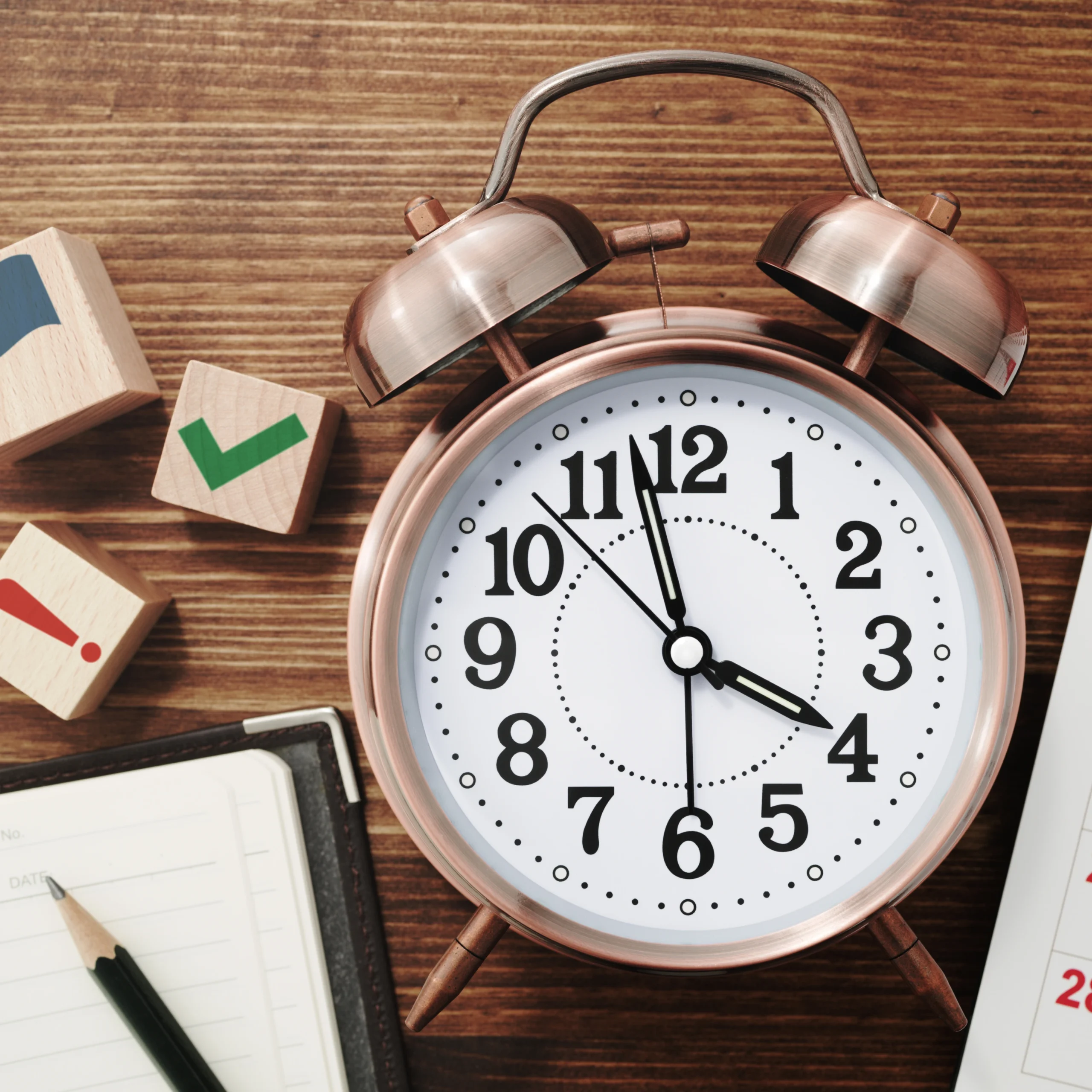My calendar was packed. Every minute scheduled. Yet somehow, I still collapsed into bed each night feeling like I'd accomplished nothing meaningful. Sound familiar?
I was drowning in a sea of productivity hacks until a friend asked me a question that changed everything: "What if it's not about managing your time better, but about mastering your energy instead?"
That question led me down a rabbit hole that transformed how I approach work and life. And today, I'm sharing what I discovered with you.

The Energy Crisis Nobody's Talking About
Let's be real: we're tired. Like, bone-deep exhausted.
A recent stress survey found that over 80% of workers feel stressed, and nearly half say it messes with their performance. Meanwhile, Gallup reports that barely a third of employees actually feel engaged at work.
We're all just... dragging ourselves through the day. Been there?
I remember chatting with Tony, a startup founder who tracked every minute of his day using three different apps. He could tell you exactly where his time went – but he still felt empty at the end of each perfectly optimized day.
"I've mastered time," he told me, "but I've never felt more drained."
That's when I realised: we don't have a time crisis. We have an energy crisis.

Why Traditional Time Management Fails Us
Here's the uncomfortable truth: not all hours are created equal.
Think about it. An hour of creative work at 9 AM when you're fresh might be worth three hours of the same work at 4 PM when you're running on fumes and your third coffee.
Our brains aren't machines that perform identically hour after hour. They're organic, messy, and they need breaks to function well.
I learned this the hard way during a product tool launch week when I worked 12-hour days back-to-back. Sure, I was "putting in the time," but by day three, I was staring at my screen for 20 minutes trying to write a single email.
Science backs this up:
- Your brain can only focus intensely for about 90 minutes before it needs a break (not the 8 straight hours your calendar suggests)
- Your willpower tank runs lower as the day goes on (which explains why that workout feels impossible after a tough day)
- Those breaks you feel guilty about taking? They're actually essential for getting anything meaningful done
As sleep researcher Matthew Walker puts it, "The shorter your sleep, the shorter your life." Pretty blunt, but he's got the data to back it up.

The Four Types of Energy (That Nobody Taught You About)
I used to think energy was simple: you either had it or you didn't. But it turns out there are actually four different types, and they all need attention:
1. Physical Energy: Your Body's Battery
This one's obvious but still overlooked. Your physical energy depends on:
- How you sleep (I was surprised to learn that my "6 hours is plenty" philosophy was actually wrecking my productivity)
- What you eat (those vending machine lunches aren't doing you any favors)
- How much you move (turns out sitting for 10 hours straight isn't great for energy... who knew?)
My personal energy hack: I now work in what I call "energy sprints" – 90 minutes of focused work followed by a 15-minute break where I MUST get up and move. It felt wasteful at first, but I get more done in 6 hours this way than I used to in 10.
2. Emotional Energy: The Vibes You Bring
Ever notice how a 30-second conversation with a negative co-worker can drain an hour's worth of energy? That's emotional energy at work.
I used to pride myself on "powering through" emotions. Stressed? Ignore it. Anxious? Push harder. But suppressing emotions is like trying to hold a beach ball underwater – it takes energy and eventually backfires.
What works for me: When I feel emotionally drained, I pause and literally name what I'm feeling. "I'm feeling overwhelmed right now." Sometimes just acknowledging it reduces its power. My therapist calls this "name it to tame it," and while it sounded like psychobabble at first, it actually works.
3. Mental Energy: Your Brain's Processing Power
This is your ability to focus, think creatively, and make decisions.
Here's something wild I discovered: judges give more favorable rulings right after lunch breaks. It's not about the food – it's that decision-making literally depletes your mental energy.
After making countless decisions all day, your brain gets tired and starts taking shortcuts or pushing decisions off.
Game-changer for me: I now batch similar tasks together. All my creative writing happens before noon. Email and admin work after lunch. Meeting prep in chunks. This simple change reduced the mental fatigue that used to hit me around 2 PM every day.

4. Spiritual Energy: Your "Why" Power
Before you roll your eyes – this isn't about religion (unless that's your thing). It's about connection to something bigger than yourself.
When work feels meaningless, it drains you. When it feels purposeful, it energizes you – even when the tasks are identical.
A friend who works in healthcare told me: "Paperwork days drain me unless I remember that each form helps a real patient get care." That reminder connects her to her deeper purpose.
What I do now: Each morning, I write down one thing I want to accomplish that actually matters to me or helps someone else. On really draining days, I take five minutes to reflect on how my work connects to my values.
How to Tell If You're Stuck in the Time-Management Trap
You might be managing time instead of energy if:
- You're busy all day but still feel like you got nothing important done (my life for years)
- You're exhausted even after sleeping enough (been there)
- You procrastinate on important stuff but can't explain why
- You're best friends with the coffee machine or snack drawer
- The things you used to care about seem... meh
Any of these sound familiar? I raised my hand to all five when I first read them.
How I Shifted from Time Management to Energy Management
1. I Tracked My Energy, Not Just My Time
For one week, I rated my energy from 1-10 throughout the day and noted what drained or boosted it.
The patterns shocked me. Tuesday meetings with my boss's boss? Energy killer. Writing sessions before 11 AM? Energy through the roof. The hour after lunch with my chatty cubicle neighbour? Energy wasteland.
Once I saw the patterns, I could work with them instead of against them.
2. I Built Recovery Into My Day
I used to wear my "no breaks" approach like a badge of honor. Now I see it was just dumb.
Elite athletes don't train 24/7—they build recovery into their routines because that's when growth happens. Why should knowledge work any differently?
Now I intentionally take:
- Micro-breaks (even 30 seconds of deep breathing between calls helps)
- Nature breaks (a 10-minute walk outside beats a 30-minute scroll through social media)
- Phone-free zones (turns out having my phone nearby steals mental energy even when I'm not using it)
3. I Created Energy Boundaries
"Energy vampires" are real, folks. For me, they included:
- The colleague who turned every 5-minute question into a 30-minute therapy session
- The endless email chains that could've been resolved in a 2-minute conversation
- The social media rabbit holes I'd fall into when tired
I started setting boundaries around these energy drains – ruthlessly scheduling my peak energy hours for important work, turning off notifications, and learning to say "I'd love to help, but I need to finish this first."
4. I Developed Energy Rituals
The difference between successful people and everyone else isn't just discipline – it's having consistent rituals that generate energy rather than drain it.
My morning ritual now includes:
- No email until I've been awake for at least an hour
- A 10-minute walk outside before opening my laptop
- Setting my top three priorities before the day's demands hit
At night, I have a shutdown ritual that helps my brain switch off (which used to take hours).

The Ripple Effects I Never Expected
When I switched from managing time to managing energy, I didn't just get more productive (though that happened too). I experienced:
- Better resilience when things go sideways (which they always do)
- More presence with my family and friends
- Fewer health issues (those stress headaches weren't a coincidence)
- More creative solutions to problems
- Way less Sunday night dread
What This Could Mean For You
Look, I'm not promising energy management will solve all your problems. And honestly, it's harder than time management in some ways because it requires self-awareness, not just a fancy calendar system.
But what if you could end each day feeling accomplished instead of drained? What if you could show up as your best self more consistently?
As writer Annie Dillard said, "How we spend our days is, of course, how we spend our lives." Managing your energy isn't just about getting more done – it's about reclaiming how it feels to be alive.
Want to try this for yourself? Start small. Pick one energy drain in your life and experiment with a boundary around it this week. Notice what happens. Then come back and let me know how it went in the comments!
